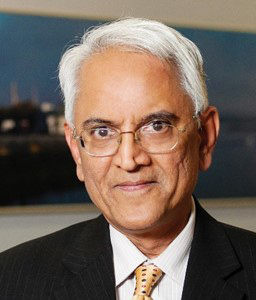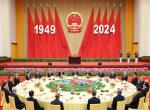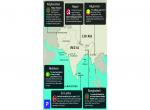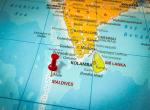It is well known that intelligence agencies of major countries have harboured dissident and insurgent groups from around the world.
Values, scruples and morality are not words in the lexicon of intelligence and security agencies. Their role is to further the interests of their countries by whatever means available. Snooping on their own citizens, citizens of friendly or adversarial countries, character assassinations, real assassinations, extra-territorial interventions and vicious social media campaigns on individuals, organisations, governments and countries are all par for the course.
Groupings of intelligence agencies are force-multipliers. The elite among them is the Five Eyes alliance of the US, Canada, UK, Australia and New Zealand. Their agencies work seamlessly together, reinforcing each other’s technologies and skill sets, dividing work to widen coverage. Farming out responsibilities enhances plausible deniability: it enables an agency to dodge domestic oversight. The Five Eyes has reinforced the US-led Western dominance of the world. It has appropriately been described as a “supranational intelligence organisation that does not answer to the known laws of its own countries”. By implying that the Five Eyes validates its allegations of Indian involvement in Nijjar’s murder, Canada seeks to give them respectability.
It is well known that intelligence agencies of major countries have harboured dissident and insurgent groups from around the world. Discreet or open shelter has been provided by various countries to the Islamic State, Muslim Brotherhood, followers of the Turkish dissident Gulen, and various Balochi, Afghan and Kashmiri groups, mainly as potential leverage over the politics at home. Many of these elements have developed some political influence in their countries of domicile.
But no country has mainstreamed terrorists of foreign origin into its national politics as Canada has done: Khalistani activists are members of Premier Trudeau’s ruling coalition.
Intelligence agencies post representatives to their embassies in countries of importance. They interface with their counterparts to exchange information on terrorism, money laundering, drug trafficking and other shared security concerns. Besides this arrangement, countries smuggle in undercover agents to monitor and counter elements of their security concern in the host country.
Agencies have well-developed codes for dealing with others transgressing limits. In most cases, they would convey the displeasure, resulting in a quiet withdrawal of the offending agent. Publicly calling out activities of a foreign intelligence service is very rare, even among adversarial states. US Director of National Intelligence James Clapper once explained to a Senate Committee why the US did not call out China for its cyber-espionage: you do not throw rocks from within a glass house.
The public Canadian allegation broke the “normal” mould in two ways. One, by taking agency-to-agency issues to the public domain. Two, by transporting intelligence differences into the political domain.
Trudeau’s assertion about uphold the international rules-based order is offensive. It implies that the right to pursue terrorists beyond borders is only given to a privileged few. Those designated as terrorists by the West have become fair game for assassination in Pakistan, Afghanistan, Iraq, Yemen and elsewhere. Countries like India are expected to plead for extradition of terrorists or some action against them, only to be rebuffed. They should meekly accept that processions showing Indian diplomats on a death list or depicting the assassins of Indira Gandhi as heroes are expressions of freedom of speech in Canada. It is precisely such insensitivity that has driven a wedge between the West and the rest in international politics today.
Much commentary in India is focussed on whether the West will close ranks behind Canada and damage India’s relations with the US and other western partners. Many see this already happening and advocate a more accommodative posture from India.
This may be a mix of over-interpretation and under-confidence. Canada’s western allies have naturally expressed solidarity with their ally. The obiter dicta about the rule of law and sovereignty are inevitable. It is the long-term impact that matters.
The relationship that India has developed with the US and other Western partners has several important strands for both sides, including strong interests in trade, investment, technology, defence and international security. A convergence of perspectives—not congruence, as often assumed—on China has provided a strategic underpinning. From a US perspective, keeping India and China apart and weaning India away from Russia are desirable objectives. India has its own geopolitical perspectives on this. Alienating India can hardly make political or economic sense.
This is not to say that Canadian and other agencies will not continue to fish in our troubled waters this election season. We will continue to receive lectures on our “illiberal democracy”. The suspicion that many countries to our north, east and west may prefer to deal with a less powerful, more malleable government in India will continue to lurk in sections of our polity.
These undercurrents will run along with the surface currents of strong shared interests, as well as a dissonance on some realities. Differences need tackling with maturity on both sides; they should not require India to bow and scrape to get back into the good graces of its Western partners. International relations have few blacks or whites; only many shades of gray.











Post new comment